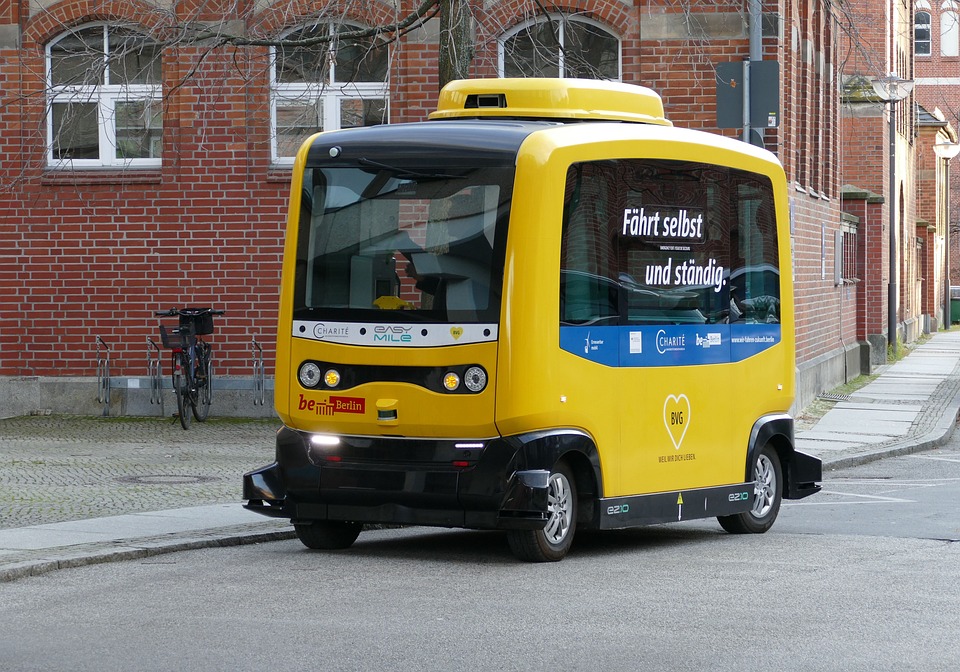Are Autonomous Vehicles the Solution to Traffic Congestion and Pollution?
Traffic congestion and pollution have long been major challenges in urban areas across the globe. As cities continue to expand, the burden on transportation infrastructure grows, resulting in increased congestion, longer travel times, and deteriorating air quality. With technology advancing rapidly, autonomous vehicles have emerged as a potentially transformative solution to address these pressing issues. However, it is important to analyze the potential benefits and limitations of autonomous vehicles before hailing them as a definitive solution.
One of the most promising aspects of autonomous vehicles is their potential to significantly reduce traffic congestion. According to a study by the National Renewable Energy Laboratory, autonomous vehicles could optimize traffic flow, reducing congestion by up to 40%. Unlike human drivers who can exhibit unpredictable behaviors, autonomous vehicles have the potential to communicate and coordinate with each other, ensuring smooth and efficient traffic movement. Additionally, autonomous vehicles can make more efficient use of existing road capacity, as they can travel closer together, reducing the number of vehicles on the road. These improvements in traffic flow would not only reduce travel times but also ease the strain on transportation infrastructure.
Moreover, autonomous vehicles could have a positive impact on air quality and pollution levels. By utilizing electric or hybrid powertrains, autonomous vehicles can significantly reduce greenhouse gas emissions. The Union of Concerned Scientists estimates that widespread adoption of electric autonomous vehicles could reduce emissions by 80% compared to internal combustion engine vehicles. Furthermore, autonomous vehicles can also optimize fuel efficiency through advanced algorithms, resulting in reduced energy consumption and lower emission levels. This shift towards cleaner transportation modes could play a crucial role in mitigating pollution and improving overall air quality in cities.
However, despite their potential advantages, autonomous vehicles are not a panacea for all transportation-related challenges. One of the primary concerns is that the introduction of autonomous vehicles may lead to an increase in overall vehicle miles traveled. Researchers at the University of California, Davis have indicated that if autonomous vehicles are not shared, but rather individually owned, they could potentially lead to higher travel demands and increased congestion. This phenomenon, known as “induced demand,” suggests that people may be more willing to undertake longer commutes or make additional trips due to the perceived convenience and comfort of autonomous vehicles. To avoid exacerbating congestion and pollution, it is crucial to facilitate shared autonomous mobility services rather than encouraging individual vehicle ownership.
Ethical dilemmas and liability concerns are also significant hurdles that need to be addressed. For instance, in the event of an unavoidable accident, how would an autonomous vehicle navigate the complexities of making moral decisions? Determining liability in such scenarios remains a challenging legal and ethical question. Additionally, ensuring the security and reliability of autonomous systems to ward off potential cyber-attacks and hacking attempts is essential to maintain public trust in this technology.
In conclusion, while autonomous vehicles hold tremendous potential to alleviate traffic congestion and reduce pollution, it is imperative to tread cautiously and address the challenges that come with their implementation. Promoting shared autonomous mobility services, integrating robust ethical frameworks, and enhancing cybersecurity measures are essential steps towards maximizing the benefits of autonomous vehicles while minimizing any adverse consequences. With proper planning and regulation, autonomous vehicles could indeed become a crucial part of the solution to traffic congestion and pollution in our ever-expanding urban landscapes.




